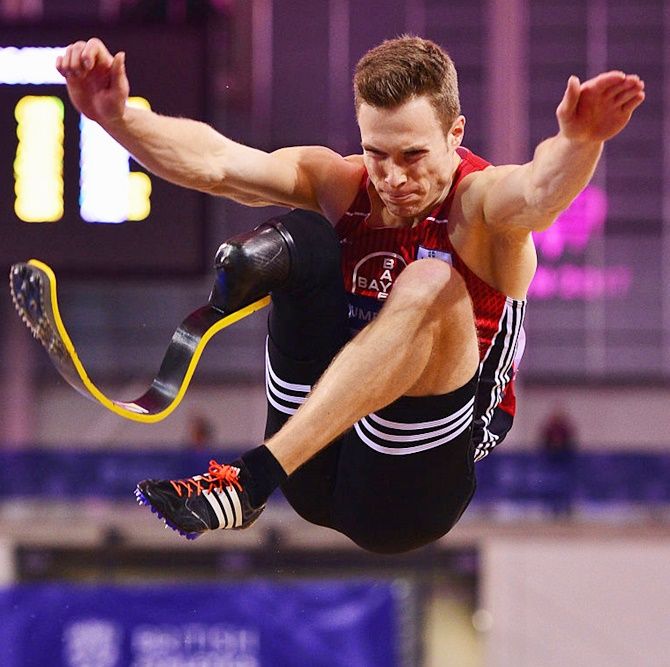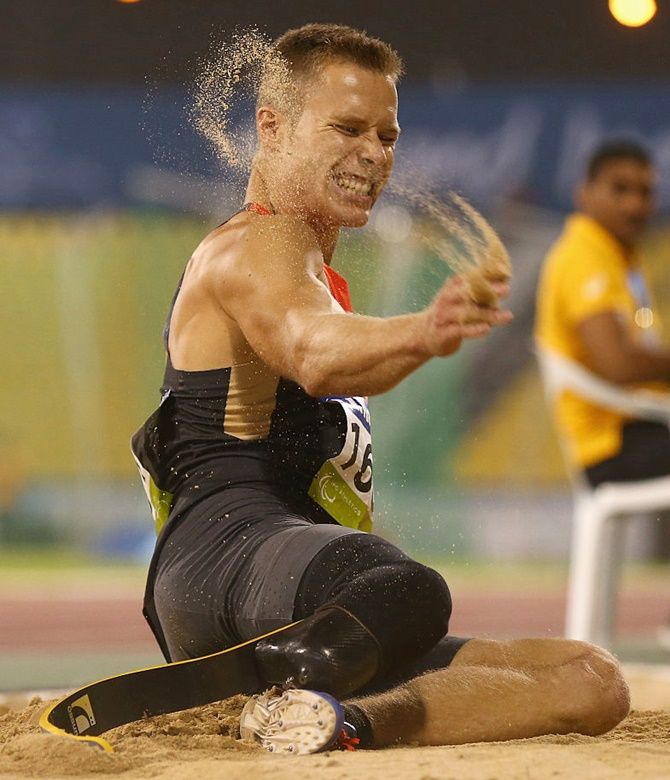
Paralympic champion Markus Rehm said he hoped new scientific studies would prove he gains no advantage through his prosthesis and clear him to compete at the Rio de Janeiro Olympics in August.
Nicknamed ‘Blade Jumper’, the 2012 Paralympics gold medallist and 2014 German long jump champion hopes to become the second athlete with a carbon fibre running blade to compete in the Olympics after South Africa's Oscar Pistorius in 2012.
But a new rule by the International Association of Athletics Federations (IAAF) introduced last year leaves it to amputee competitors to prove their prosthesis does not put them in an advantage over able-bodied athletes.
"Markus Rehm and the German Disabled Sports Association hope to gain clarification from the results about whether it will be possible in the future for athletes with amputations to compete at national and international athletics competitions," his management said in a statement on Tuesday.
"The results will be presented at the beginning of June in Cologne."

The studies are conducted in association with the German Sport University Cologne, the National Institute of Advanced Industrial Science and Technology in Tokyo, the University of Colorado Boulder as well as a Japanese broadcaster.
IAAF's new rule bans 'the use of any mechanical aid, unless the athlete can establish on the balance of probabilities that the use of such an aid would not provide him with an overall competitive advantage over an athlete not using such aid.'
Rehm's performances have caused a stir, especially after his 2014 German title victory that triggered mixed reactions from fellow athletes at the time.
He also beat able-bodied athletes with a jump of 8.10 metres at the Glasgow Indoor Grand Prix in February.
The 27-year-old, who lost his lower right leg in a boating accident as a teenager, has already complained his case was dragging on, with the IAAF still to publish the specific criteria for their new rule.
Rehm, who under the current rule is at the moment unavailable for selection for the German Olympic team, has also threatened legal action as a last resort if the IAAF was seen to be stalling his case.
The Rio Olympics begin on Aug. 5, with the long jump qualifying and final competitions set for Aug. 12-13.













 © 2025
© 2025